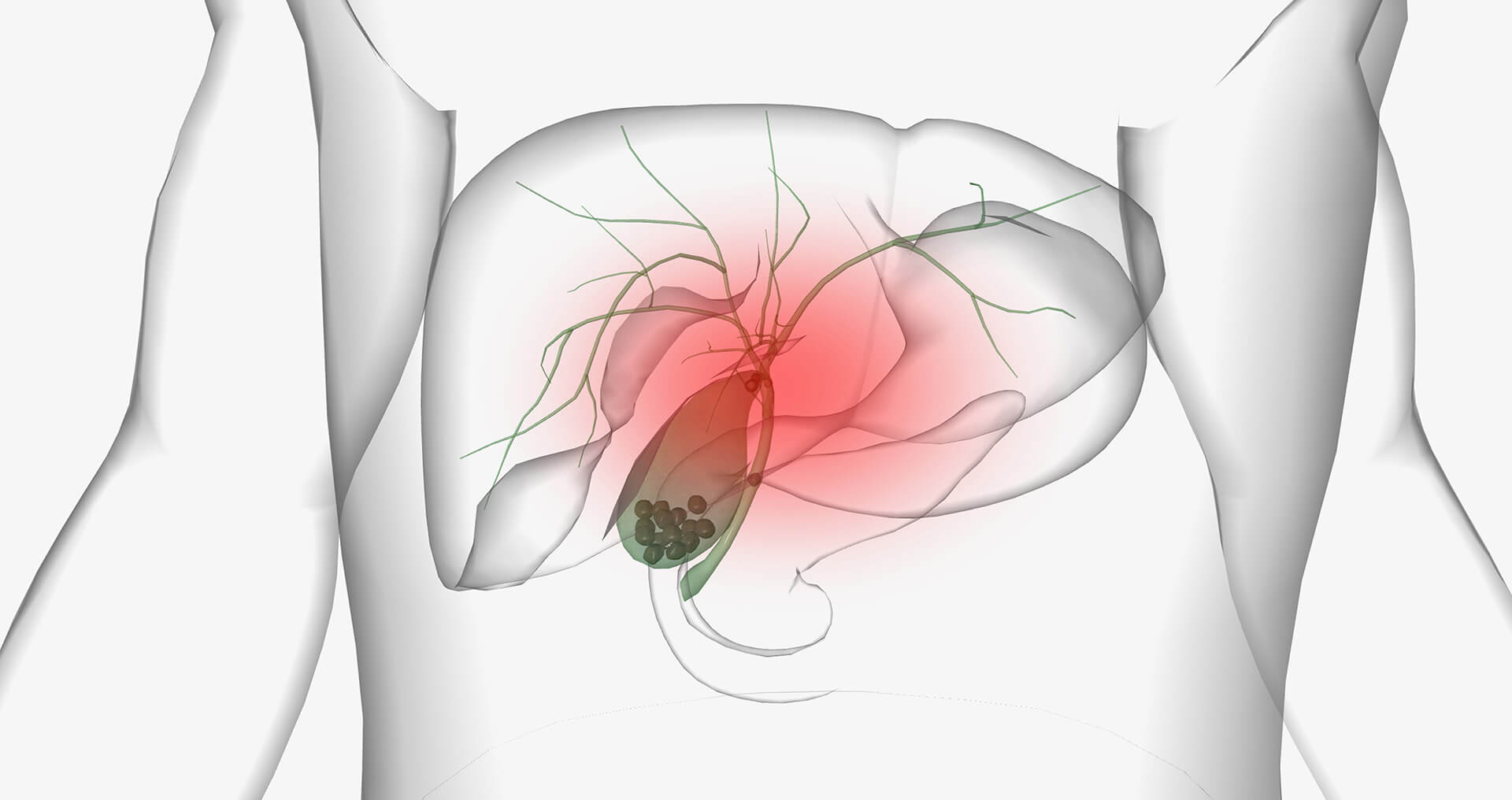Gallstones are a digestive condition in which hard deposits of a digestive fluid known as bile develop in the gallbladder. The gallbladder is a small organ located on the right side of the abdomen, near the liver. It’s responsible for holding bile, used in the digestion of fat, that is produced by the liver, and releasing bile as needed. Gallstones vary considerably in their size and number; symptoms also vary.
About Gallstones
Gallstones are composed of various substances found in bile, including cholesterol. Some gallstones are small, only the size of a grain of sand, while others are as big as a ping-pong ball. Some people have only a single gallstone, while others end up with several.
The majority of cases are asymptomatic, meaning that many people have gallstones without ever even realizing it. However, symptoms will develop if one of the stones blocks a duct through which bile normally passes. Symptoms may include:
- Pain in the upper right abdomen, or in the upper right back or shoulder blades. Pain may either be constant or ebb and flow, and it can vary from mild to severe.
- Nausea or vomiting.
- Fever and chills.
- Yellow skin or whites of the eyes.
Sudden, severe pain in the chest or belly can also be a sign of a heart attack, so it’s important to seek prompt medical treatment if you have unexplained pain in that area.
To determine the cause of your symptoms, your doctor will use medical imaging on the gallbladder. Ultrasound imaging can usually reveal gallstones, but sometimes it may also be necessary to use a gallstone scan, in which a dye is injected into your veins, and an x-ray is used to see how it moves through your gallbladder and the associated ducts. Other tests may be needed if gallbladder dysfunction is suspected, even after normal ultrasound.
Causes & Risk Factors
Doctors believe that most gallstones form when the contents of bile are imbalanced. The most common cause is an excess of cholesterol in the bile, resulting in cholesterol gallstones. An excess of bilirubin, a substance produced when the body breaks down red blood cells, can cause pigment gallstones. They can also develop if the gallbladder doesn’t empty completely, resulting in concentrated bile.
Anyone can get gallstones, but certain factors put you at a higher risk of developing this condition, including:
- High-fat diet
- High-cholesterol diet
- Low-fiber diet
- Obesity
- Pregnancy
- Losing weight very quickly
- Being female
- Being over 60 years old
- Family history of the condition
- Taking certain medications, including some cholesterol-lowering medications and some estrogen-containing medications
Treatment
People who have no symptoms from their gallstones don’t need treatment. If you have only had one mild gallstone attack, your doctor might recommend that you take pain medication and wait for it to pass.
People who have severe symptoms or more than one gallstone attack should have the gallbladder removed. The gallbladder is not an essential organ; after its removal, the liver simply deposits bile directly into the intestines. This can sometimes cause small changes in the way you digest foods, especially very fatty foods. However, the changes are normally mild and might not even be noticed by you.
Patients who cannot have gallbladder surgery, such as those with other serious health problems, may be treated with medication. However, medication is slow-acting and not as effective, so surgery is preferred in most cases. Also, if you have digestive problems such as diarrhea with certain foods after your gallbladder has been removed, there are effective medications that can help this problem.
If you think you might have gallstones, it’s important to get diagnosis and treatment. To schedule a consultation today, please contact a gastroenterologist with GI Alliance.


